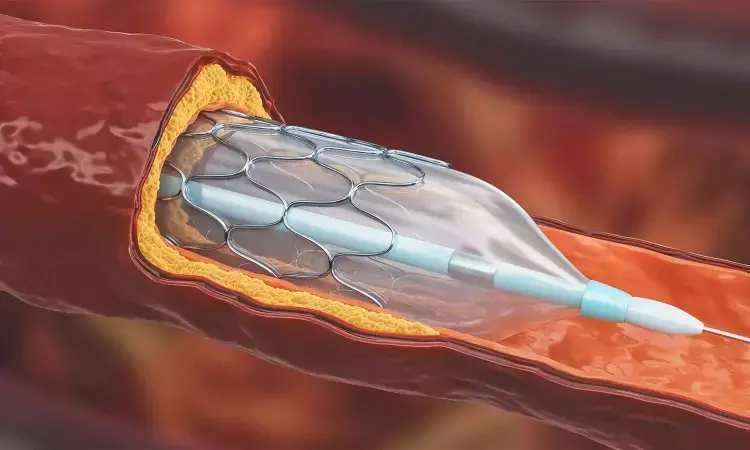- Home
- Medical news & Guidelines
- Anesthesiology
- Cardiology and CTVS
- Critical Care
- Dentistry
- Dermatology
- Diabetes and Endocrinology
- ENT
- Gastroenterology
- Medicine
- Nephrology
- Neurology
- Obstretics-Gynaecology
- Oncology
- Ophthalmology
- Orthopaedics
- Pediatrics-Neonatology
- Psychiatry
- Pulmonology
- Radiology
- Surgery
- Urology
- Laboratory Medicine
- Diet
- Nursing
- Paramedical
- Physiotherapy
- Health news
- Fact Check
- Bone Health Fact Check
- Brain Health Fact Check
- Cancer Related Fact Check
- Child Care Fact Check
- Dental and oral health fact check
- Diabetes and metabolic health fact check
- Diet and Nutrition Fact Check
- Eye and ENT Care Fact Check
- Fitness fact check
- Gut health fact check
- Heart health fact check
- Kidney health fact check
- Medical education fact check
- Men's health fact check
- Respiratory fact check
- Skin and hair care fact check
- Vaccine and Immunization fact check
- Women's health fact check
- AYUSH
- State News
- Andaman and Nicobar Islands
- Andhra Pradesh
- Arunachal Pradesh
- Assam
- Bihar
- Chandigarh
- Chattisgarh
- Dadra and Nagar Haveli
- Daman and Diu
- Delhi
- Goa
- Gujarat
- Haryana
- Himachal Pradesh
- Jammu & Kashmir
- Jharkhand
- Karnataka
- Kerala
- Ladakh
- Lakshadweep
- Madhya Pradesh
- Maharashtra
- Manipur
- Meghalaya
- Mizoram
- Nagaland
- Odisha
- Puducherry
- Punjab
- Rajasthan
- Sikkim
- Tamil Nadu
- Telangana
- Tripura
- Uttar Pradesh
- Uttrakhand
- West Bengal
- Medical Education
- Industry
Immediate or staged complete revascularization- which is better in patients with STEMI and MVD?

Korea: A recent study compared clinical outcomes between immediate and staged complete revascularization in primary PCI (percutaneous coronary intervention) for treating multivessel disease (MVD) and STEMI (ST-segment elevation myocardial infarction).
The researchers showed that the immediate revascularization group met the noninferiority criteria for the primary composite outcome, but at the 1-year follow-up, superiority was not met. In the immediate revascularization group, a marked reduction in myocardial infarction was noted versus the staged revascularization group. The findings were featured in the online issue of the American Heart Journal.
"Due to its limited power, no firm conclusion can be drawn from the study regarding the complete revascularization strategy from the present study," the authors wrote. "Further large randomized clinical trials (RCTs) would be warranted to confirm the optimal timing of complete revascularization for patients with STEMI and MVD."
The study showed that the overall death and MACE occurrence in the immediate revascularisation group was numerically higher in the study population; however, this difference was not statistically significant. For the other endpoints, the event of MI, stent thrombosis, revascularization, and stroke did not show differences between the two groups.
Soohyung Park, Korea University Guro Hospital, Seoul, Korea, and colleagues enrolled 248 patients in a randomized, prospective, multicenter registry. Immediate revascularization was defined as one-time PCI of the culprit and non-culprit lesions at the initial procedure. Staged revascularization was PCI of non-culprit lesions at a later date, after initial culprit revascularization.
The endpoints included MACE (major adverse cardiovascular events; composite of recurrent myocardial infarction, total death, and revascularization), any individual components of MACE, stroke, and stent thrombosis at 12 months.
The study revealed the following findings:
- MACE occurred in 11.6% of patients in the immediate revascularization group during a follow-up of 1 year and 7.5% of patients in the staged revascularization group (hazard ratio [HR] 1.60).
- In the immediate group, the incidence of total death was numerically higher than in the staged group (9.7% vs 2.8%, HR 3.53).
- The team found no significant differences between the two groups in risks of any MACE individual components, stroke, cardiac death, and in-hospital complications, such as the need for transfusion, bleeding, acute heart failure, and acute renal failure.
- This study was prematurely terminated due to the halt of everolimus-eluting stents (manufactured as PROMUS Element by Boston Scientific, Natick, Massachusetts).
The team concluded that no definite conclusion regarding the complete revascularization strategy can be drawn. Further large RCTs would be warranted to confirm the optimal timing of complete revascularization for patients with STEMI and MVD.
Reference:
Park, S., Rha, S., Choi, B. G., Cho, J. H., Park, S. H., Lee, J. B., Kim, Y. H., Park, S. M., Choi, J. W., Park, J. Y., Shin, E., Lee, J. B., Suh, J., Chae, J. K., Choi, Y. J., Jeong, M. H., Cha, K. S., Lee, S. W., Kim, U., . . . Park, C. G. (2023). Immediate versus staged complete revascularization in patients with ST-segment elevation myocardial infarction and multivessel coronary artery disease: Results from a prematurely discontinued randomized multicenter trial. American Heart Journal, 259, 58-67. https://doi.org/10.1016/j.ahj.2023.01.020
Dr Kamal Kant Kohli-MBBS, DTCD- a chest specialist with more than 30 years of practice and a flair for writing clinical articles, Dr Kamal Kant Kohli joined Medical Dialogues as a Chief Editor of Medical News. Besides writing articles, as an editor, he proofreads and verifies all the medical content published on Medical Dialogues including those coming from journals, studies,medical conferences,guidelines etc. Email: drkohli@medicaldialogues.in. Contact no. 011-43720751


